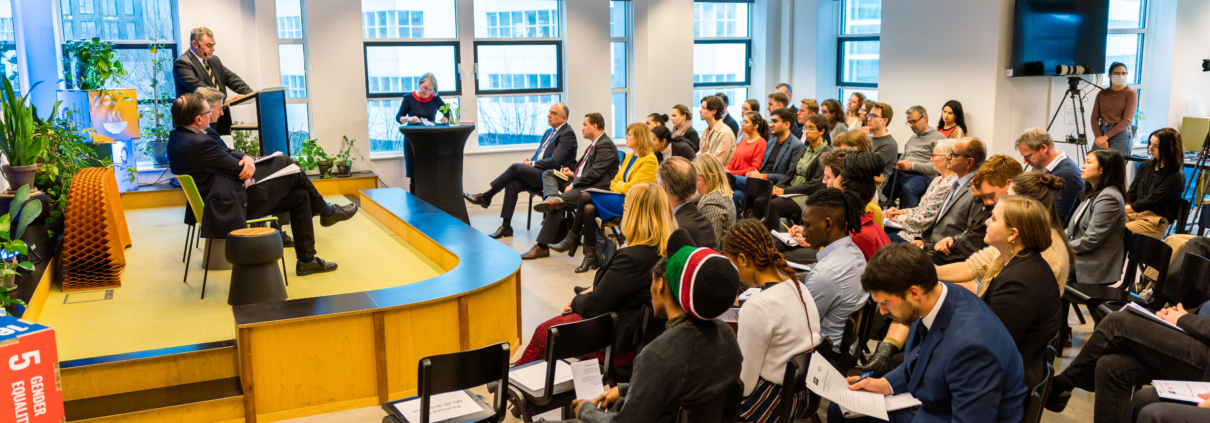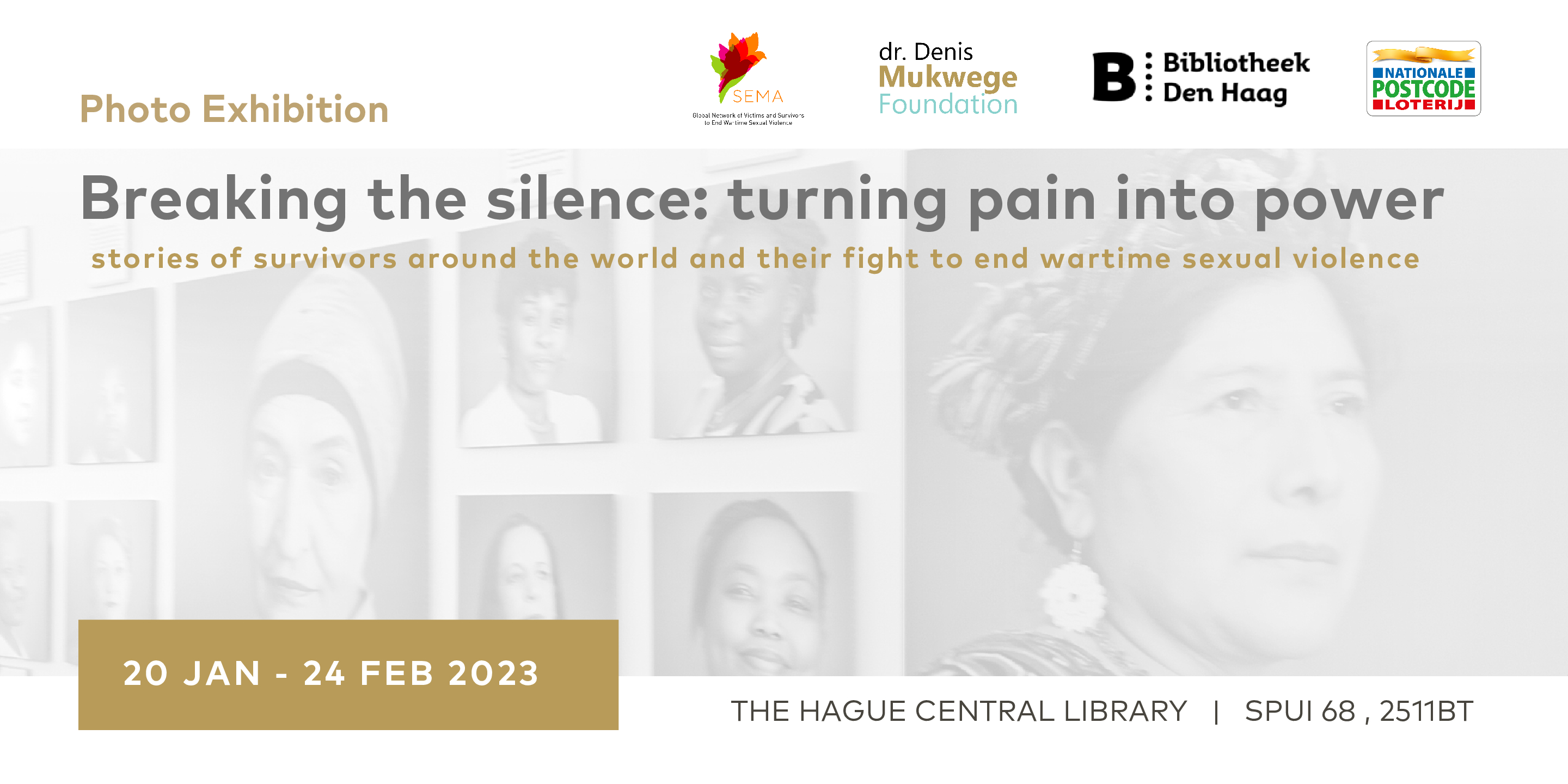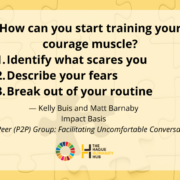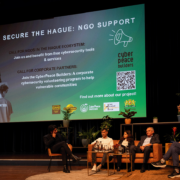Closing Event: The Hague Conversations on The Future of Europe in the World
At a recent European Union leaders’ summit, the current war in Ukraine was described as “a tectonic shift in European history.”
In the last months, the Humanity Hub has been supporting a programme of ‘Conversations on the Future of Europe in the World’ – a series of 10 in-person and online citizen consultations running in the European Union’s pan-European dialogue process, the Conference on the Future of Europe. On 22 February, two days before Russia’s invasion of Ukraine, the final event in this series took place in The Hague Humanity Hub café, presenting to the City and the European Commission the ideas, views and perspectives expressed by citizens of The Hague on what that future of Europe should look like.
The series was organised by LINKS Europe in association with the City of The Hague and with the support of the Humanity Hub. At the final event, an advanced draft of the paper, ‘The Hague in Europe, Europe in the World’ – a distillation of the findings of the consultations – was presented to the audience with an opportunity for them to question, critique and contribute to the ideas put forward. The final version of this paper, which includes input from the closing event, is available here.
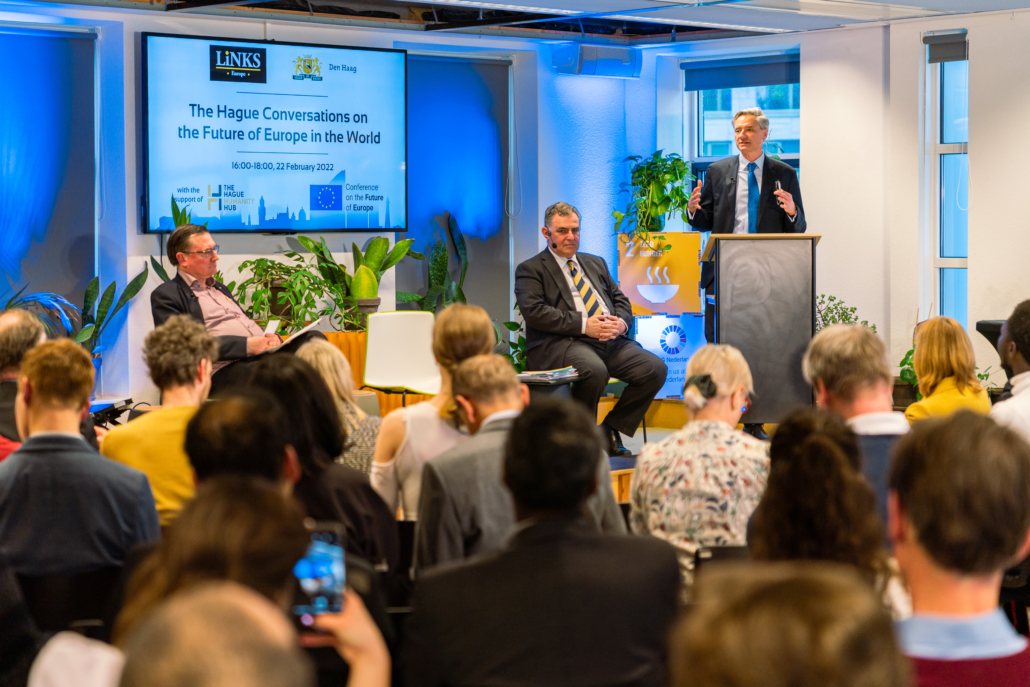
“It is extraordinary how closely the views of people in The Hague, the changes they wanted to see happen in Europe, expressed in our paper, have been mirrored by events on the ground,” says Dr Dennis Sammut of LINKS Europe, referring to the concerns around security, foreign policy, and integration that emerged from the consultations, “but a key finding from our conversations on the future of Europe in The Hague was that Europe needs to communicate better with the citizenry. And that is still something, that in these extraordinary times, with a war in mainland Europe, people want to see improve outside of Brussels.”
At the event, Dr Sammut handed over an advanced draft of the final report, alongside full summaries of each of the consultations in the series, to The Mayor of The Hague, Mayor Jan van Zanen, and The Deputy Head of Cabinet to European Commission Vice-President Dubravka Šuica, Ivo Belet.
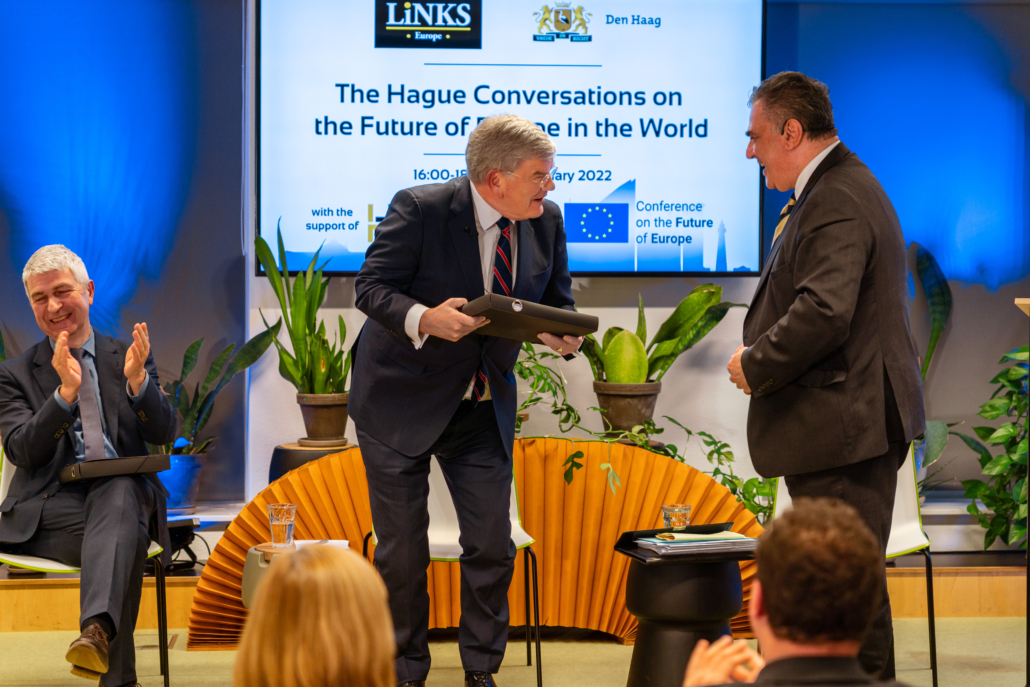
Tony van der Togt, Senior Research Associate at The Clingendael Institute, and Dr Walter Kemp, Lecturer at the Diplomatic Academy in Vienna, shared their thoughts on the paper and generated a discussion with audience participation.
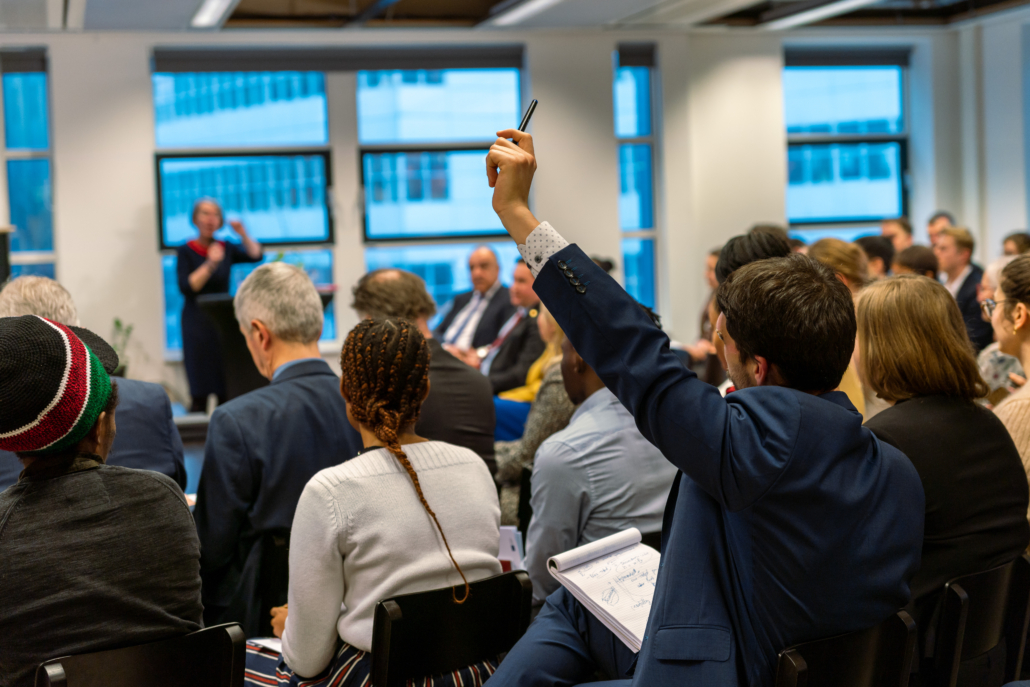
Check out the full event recording here.
Closing event: The Hague Conversations on the Future of Europe in the World
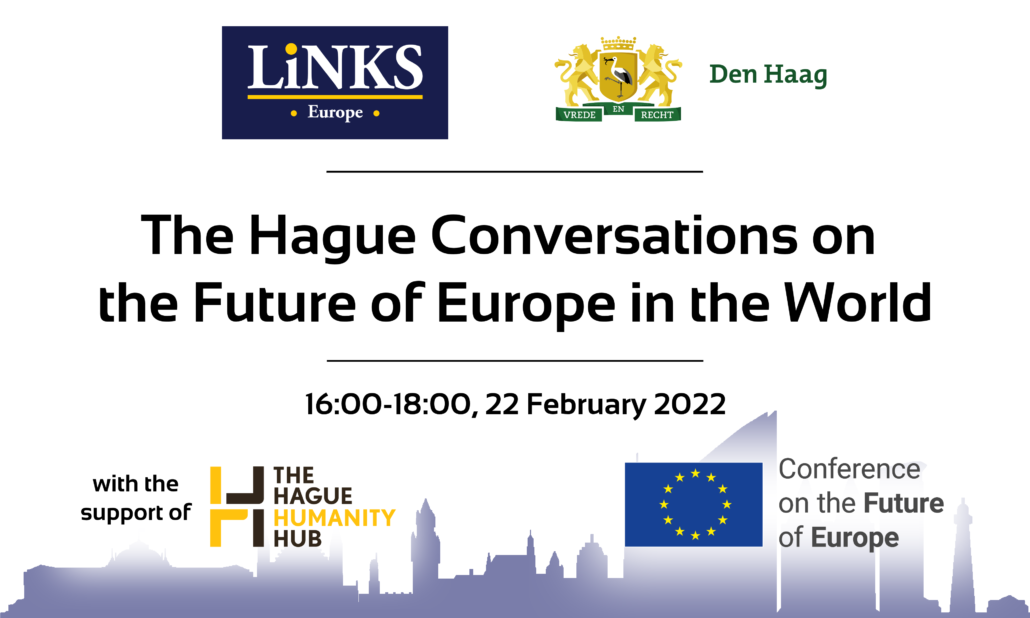
On the same day the Humanity Hub also hosted the final two citizen consultations in the series, in two separate meetings with representatives from The Hague’s diaspora communities and its non-profit sector.
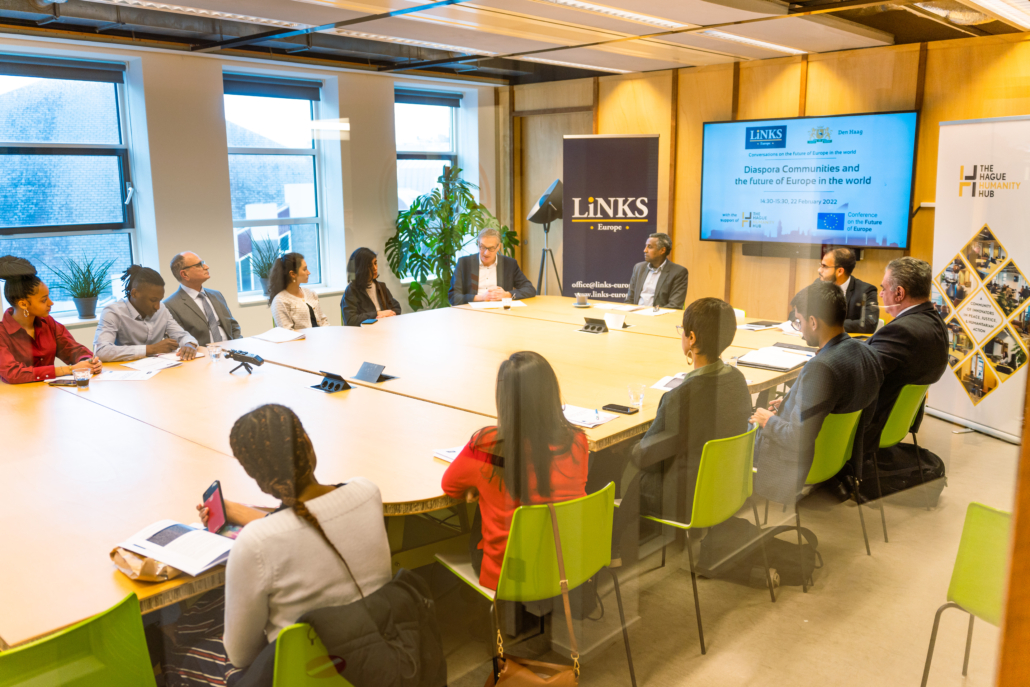
Diaspora Communities and the future of Europe in the world
The Hague is home to many diaspora communities. But such communities are not always well-represented in decision-making despite being citizens of EU member states. Some of the challenges that face the EU today, such as radicalisation, an influx of illegal migrants, and civic integration for newcomers, affect the diaspora communities directly, and their voices on these issues often do not reach policymakers at the EU level. This roundtable set out to discuss how the EU can better engage with its diaspora communities when considering the future of the bloc on the world stage, and whether there a role for local and municipal authorities in helping empower diaspora communities to fine-tune their contribution to the wider European debates, especially on foreign, defence and security policy.
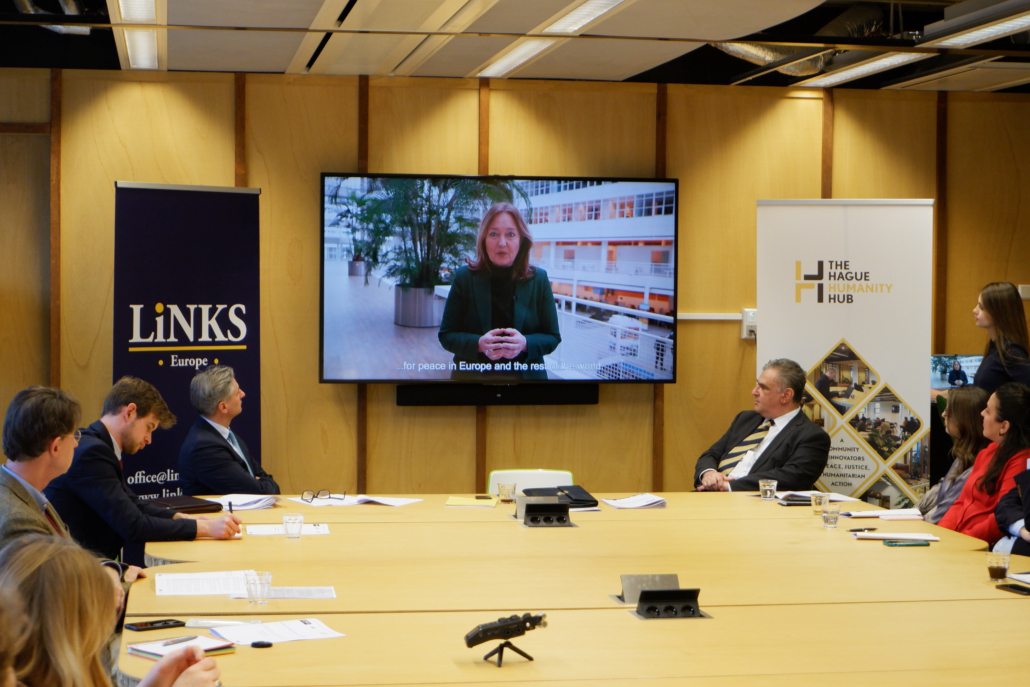
‘Stichting Europa’: The role of the non-profit sector in pursuit of a Global Europe.
Another roundtable discussion was held looking at the role of the non-profit sector in the future of Europe. NGOs, think tanks and other civil society groups are part of the European patrimony; “NGOs are part of our DNA”, European officials are often heard saying. This discussion addressed whether the vibrancy and dynamism of the European third sector was being used properly in the process of building a global Europe. It assessed how the EU can better galvanise the sector’s wealth of skills and knowledge, as well as how the EU can involve and empower non-profits to work towards common global goals. Participants were also invited to offer practical ideas on how The Hague’s rich civil society eco-system can contribute to this process in the future.
Photo credits: Holland Park Media

